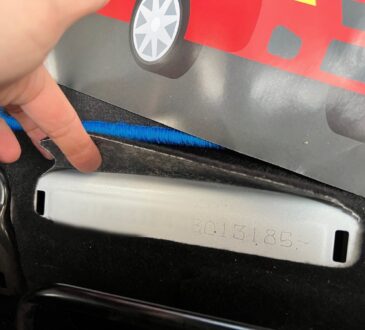
If you’ve been involved in a car accident, there are several things you should be aware of. In the first place, you need to check with your insurance company to make sure that you have the proper coverage. If you don’t have the coverage you need, you can always sue the at-fault party for damages.
Suing the at-fault party for damages
If you have been involved in a truck accident, you may want to file a lawsuit against the at-fault party. The damages you can receive from an accident can vary depending on the state. For example, if you were in a Florida truck accident, you might be able to sue for permanent scarring or impairments.
Alternatively, you can use your own insurance to help cover your medical bills. However, these benefits are often limited to $25,000 per person.
What happens if the at-fault party does not have truck insurance? Another article to read.
When you get into a crash, you need to collect evidence to support your claim. An experienced attorney can guide you through the steps of filing a lawsuit. A lawyer may also offer advice on the types of evidence you need to gather.
Proving that the at-fault party was negligent is a tricky proposition. It can take a long time and many lawsuits do not even pay out. That is why you should consult an attorney immediately.
One of the most important things to learn before suing an at-fault party is to determine whether you are in a no-fault state. In this situation, you should only have to sue the at-fault party if you were the driver at fault. In other cases, you might be able to claim from the at-fault party’s insurer.
Uninsured motorist coverage
If you’re in a car accident and the at-fault party does not have insurance, you may be able to make a claim under your own uninsured motorist coverage. This type of coverage is designed to protect you and your family from financial losses due to accidents.
If you have uninsured motorist coverage, you can be reimbursed for damages, such as medical bills, lost wages, and pain and suffering. You may also be able to collect from your own insurance company. If you are unsure, it is best to speak to a personal injury attorney before filing a claim.
Uninsured motorist coverage is not mandatory in most states, and it is generally not included in your liability coverage. However, your own insurance company has a duty to handle claims in a reasonable manner. If they fail to do so, you may be able to file a bad faith claim against them.
The first step in making a claim is to notify your own insurance company of the accident. Your insurance company can then investigate the other driver’s insurance status and help you to understand your options.
The at-fault party may not have truck insurance, but his or her own vehicle may have uninsured motorist coverage. You may also need to get supplemental coverage to pay for expenses, such as repairs to your vehicle.
Collision coverage
If you are involved in an automobile accident and the at-fault driver doesn’t have insurance, you may have a difficult time recovering from the damage. Luckily, there are ways to make your situation better, including filing a claim, or suing the at-fault party.
There are several types of insurance you can file a claim under. This includes the bare bones no-fault insurance, supplemental insurance, and uninsured/underinsured motorist coverage. In most cases, you can expect your coverage to cover expenses related to medical treatment, lost income, and damage to your vehicle. You can also sue other drivers for their negligence. However, this is often not an easy process.
The best way to figure out if you should file a claim is to evaluate your financial situation. This is especially important if you are still making payments on your car. It is also important to understand the requirements of your particular policy. Some insurers may have a maximum time limit for filing a claim.
Other forms of insurance, such as the “right of subrogation”, allow your insurer to make claims against other parties for your losses. In some cases, your deductible may have been reduced by your provider. For example, your deductible might have been lowered if you have had a clean driving record.





